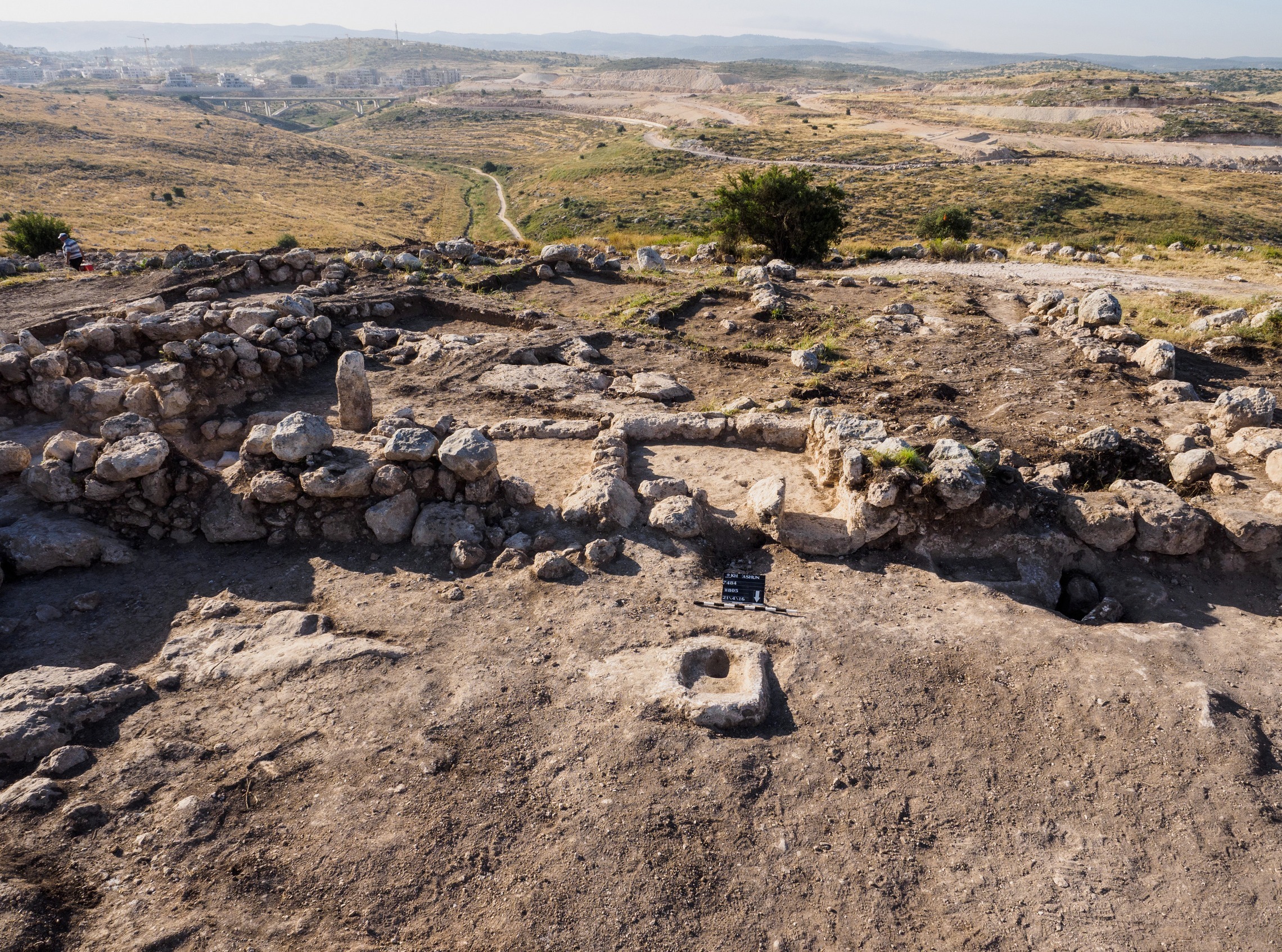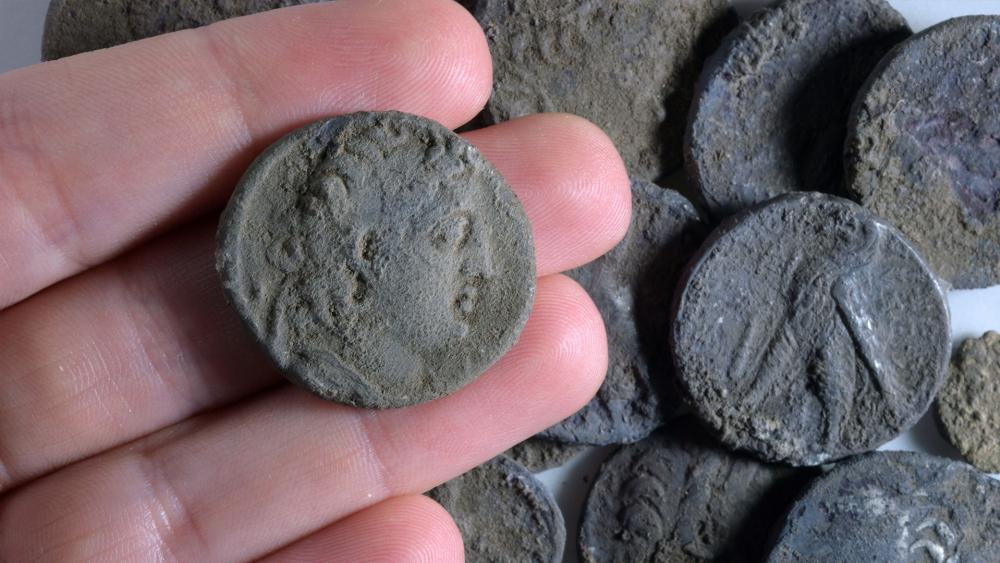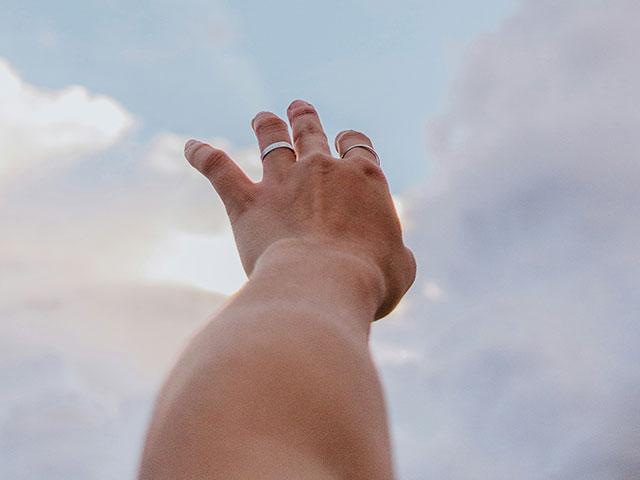JERUSALEM, Israel – Pre-construction excavations, a government requirement in Israel, frequently uncover fascinating evidence of the nation's ancient past. One of the latest finds is no exception.
Not far from the city of Modi'in, about halfway between Jerusalem and Tel Aviv, Israel Antiquities Authority archaeologists, joined by local youth, uncovered a collection of 2,000-year-old silver coins, dating to 126 B.C.

The coins, hidden in the crevice of a rock, butted up to a wall of an "impressive agricultural estate," which archaeologists say belonged to a Jewish family living during the Hasmonean period.
Excavation director Avraham Tendler described the coins as shekels and half-shekels minted in the city of Tyre and bearing the images of the king, Antiochus VII, and his brother, Demetrius II.

"The cache that we found is compelling evidence that one of the members of the estate, who had saved his income for months, needed to leave the house for some unknown reason," Tender said in the IAA press release. "He buried his money in the hope of coming back and collecting it, but was apparently unfortunate and never returned. It is exciting to think that the coin hoard was waiting here 2,140 years until we exposed it."
In addition to the silver coins, the team uncovered bronze coins minted by the Hasmonean kings and bearing the names of several of them.

Tendler said the family planted olive trees and vineyards on the surrounding hills and grain in the valleys. They're also excavating an "industrial area" next to the estate with an olive press and storehouses for the oil.
"Dozens of rock-hewn winepresses that reflect the importance of viticulture [grape production] and the wine industry in the area were exposed in the cultivation plots next to the estate," he said, adding that the house itself was built of massive walls to protect its residents from marauding bandits.
The team uncovered mikvehs (ritual immersion baths), indicating the residents observed Jewish purification rituals.
They also found compelling evidence that the residents took part in the first revolt against the Romans in 66 A.D. That was just a few years before 70 A.D., when the invading army breached the walls of Jerusalem, destroyed the city and burned down the first Jewish Temple, built by King Solomon, where Jesus taught. The Romans slaughtered Jewish residents or sold them into slavery.
The IAA plans to preserve the historic site in an archaeological park in the new neighborhood.
Did you know?
God is everywhere—even in the news. That’s why we view every news story through the lens of faith. We are committed to delivering quality independent Christian journalism you can trust. But it takes a lot of hard work, time, and money to do what we do. Help us continue to be a voice for truth in the media by supporting CBN News for as little as $1.










 Subscribe
Subscribe Follow
Follow CBN.com
CBN.com
 Support CBN News
Support CBN News







